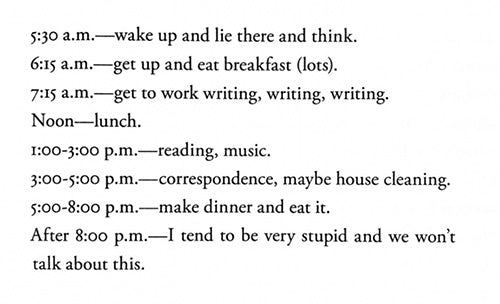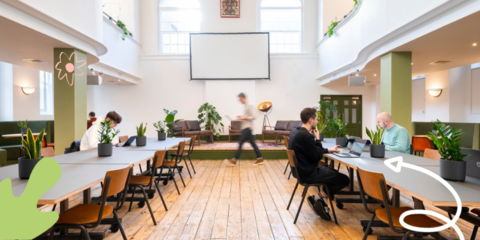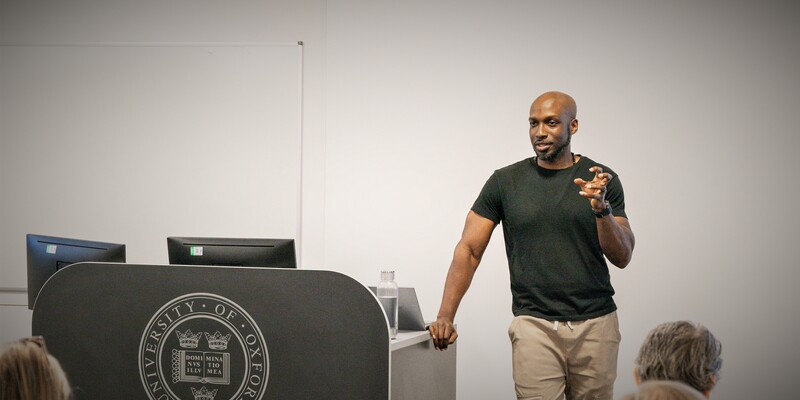Deep work: Your company's competitive advantage

Too many businesses don't understand the importance of 'deep work', and fail to create a culture that enables workers to focus. Here's how to give your culture a deep work reset.
G L
By Georgie Lavin
•
Oct 11, 2022
I’ve spent more than 10 years helping companies build effective talent functions.
I know how much time and money goes into talent strategies: shaping company values, finding and attracting talent, retaining talent, building performance management frameworks, designing benefits and compensation packages, offering learning and development, implementing team engagement activities, coaching managers, coaching staff…
It’s exhausting, right?
You’d be forgiven for asking yourself if these strategies are actually making a difference. Is doing what everyone else is doing (and maybe even not as well) making your company a unicorn?
The answer is probably no.
I believe this is because many companies are focusing on the means and not the end.
The success of your business relies entirely on your knowledge workers – those who are paid to use their skills and brains.
Ask yourself: "What will make my business succeed?"
The honest answer is that unless you’re a factory that relies on machines, the only way your business will succeed is if your talent can produce exceptionally difficult work, quickly, and well.
Honestly, that’s it.
You need your leadership team to come up with a vision no one else has, and a plan for how to get there. You need your finance team to make your cash count, and your marketing team to devise campaigns that will be heard amongst the clutter. You need a sales team that can tell a winning story over the phone, and your development team to build quality code faster than your competitors.
In short, the success of your business relies entirely on your knowledge workers – those who are paid to use their skills and brains.
This is what Cal Newport writes about in his book, Deep Work, and is the basis of FLOWN.
At FLOWN, we don’t believe companies will gain competitive advantage by approaching talent strategies in the same way they always have. They will be exceptional only by embedding a culture of deep work.
The only way your business will succeed is if your talent can produce exceptionally difficult work, quickly, and well
What does a 'deep work culture' look like?
Deep work is not just about "work performed in a state of distraction-free concentration", as Cal Newport put it. And unfortunately, saying “we’re a company that supports deep work” is also not enough. The way you view and do work needs to be shaped to truly embed deep work principles into your culture. Let's explore some ideas...
Structure that allows individuals to self-optimize
The late novelist Ursula Le Guin shared her daily work routine in an interview in 1988:

Highly-effective people know how to get the best from themselves. The right structure is personal to the individual, and needs to have the appropriate balance of focused bouts of work, inspiring rests, shallow tasks, and personal admin. It doesn’t have to be conventional, but it does need to be structured and consistent. Get it right, and it will be effective.
Some people will get their best work done before the MD is out of REM sleep, while others won't start firing away until dinnertime. Leaders who 'get' that, and enable people through flexible ways of working to optimize their effort, will get the best output from their team.
Ring fence time for deep work
Count up the hours spent in meetings and the number of Slack messages sent. This is time talking about work, but not actually doing work.
Research from Adobe found that the average office worker spends more than three hours a day on email. If that sounds like your business's workforce, what does it say about your culture? It means something is wrong with your company playbook (or maybe it’s that you don’t have a playbook at all).
Giving people access to things that are scientifically proven to make them think better
When you play, when you explore, when you are exposed to diverse thinkers, your brain makes new connections.
This is about more than having a diverse workforce or access to learning and development budgets, it’s about ensuring your staff are exposed to art, science, nature, and different ways of doing things.
The importance of physical space
The most common workplace argument I’ve had to mediate is about air conditioning.
Yep. Some like to be warm, some like to be cold. I dare make no claim on which is correct, only that it’s resulted in so many hours of my life that I simply can’t ignore how much our environment impacts our ability to work.
Companies often invest budget in team drinking and occasional off-sites, but rarely think about giving staff access to different and inspiring places to get away and concentrate.
Our knowledge workers probably do most of their work from home or from an office. Even assuming your staff live in glamorous retreats and your office is worthy of a Vogue shoot, are these environments always the best places to help people do their best work and think their best thoughts?
Companies often invest budget in team drinking and occasional off-sites, but rarely think about giving staff access to different and inspiring places to get away and concentrate.
Bill Gates led Microsoft to launch Internet Explorer because of one Think Week in a beautiful location. The “grand gesture" (as Cal Newport calls it) of getting away to get things done has resulted in some of the world’s greatest innovations and creative breakthroughs. Yet few companies have thought to offer anything more than the choice between the home office and the 'office'.
The power of rituals
Everyone needs purpose in their life. We need a sense of community, a goal to strive for, the encouragement of the herd, moments that make us laugh and feel as though we’re on the inside of the greatest, private in-joke.
At FLOWN we start our week with a meditation and intention setting. My team starts the day answering a random question (today’s was “what decade would you want to visit”), and we all end the week with Jolly Trolly, where we reflect on our intentions, and play an online team game after which Guy is always accused of cheating (because he always wins), and the team know to expect an almost dangerous degree of sibling rivalry between me and Alicia.
These are FLOWN’s rituals. No matter our varying work structures, these anchor us to something deeper.
Change the way you view and do work
Cal Newport wrote: “The ability to perform deep work is becoming increasingly rare at exactly the same time it is becoming increasingly valuable in our economy. As a consequence, the few who cultivate this skill, and then make it the core of their working life, will thrive.”
Our lives are consumed with online and offline distractions, and we’re grappling with the pros and cons of this new 'work from anywhere' post-Covid world.
The smartest businesses will see this as an opportunity to design their culture around truly getting the best from their people. This means:
Embracing asynchronous ways of working to help individuals optimize themselves.
Creating time for everybody to do deep work (in part by removing the need to constantly talk about the work).
Facilitating high-functioning brains by enabling play, creativity, and exploration.
Embedding company-wide rituals that help deep work happen.
Companies invest extraordinary amounts of time and money on talent strategies, but what Cal Newport so succinctly tells us is: “If you don’t produce, you won’t thrive—no matter how skilled or talented you are.”
Your business won’t succeed by pushing forward with the same talent strategies as everybody else. It will succeed by embedding a culture of deep work, and empowering your staff produce quality work, every day.



















